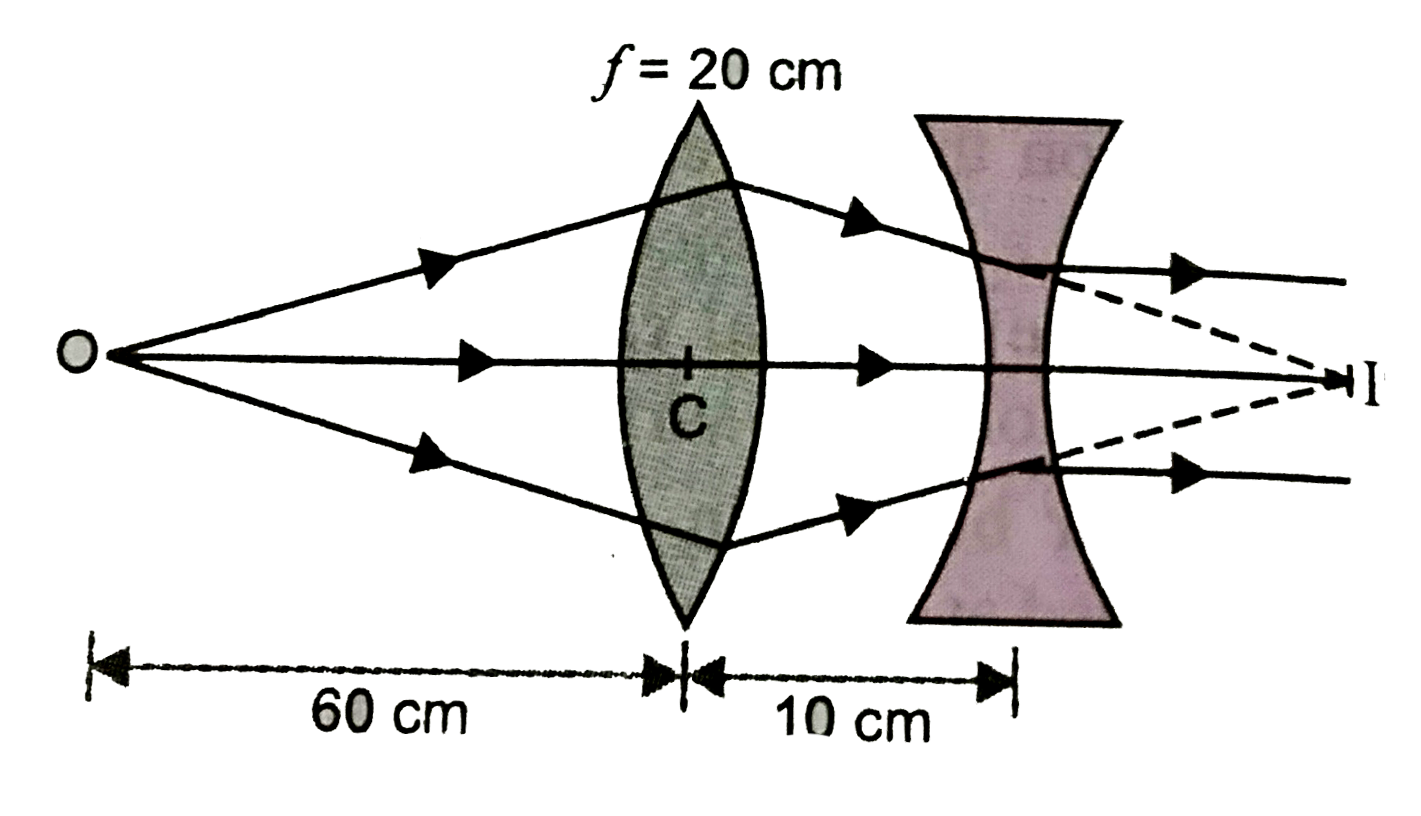Complete Solutions to TYPE H of chapter RAY OPTICS of Class 12 book with complete answers and questions
| Class 12 | PHYSICS |
| Chapter | RAY OPTICS |
| SL ARORA | TYPE H |
| Number Of Questions | 19 |
| Academic Year | 2023-24 |
An object is kept at 0.2m from a convex lens of focal length 0.15 m. Find the position of the image produced.
View SolutionAn object of size `3.0 cm` is placed `14 cm` in front of a concave lens of focal length `21 cm`. Describe the image produced by the lens. What happens if the object is moved further from the lens ?
View SolutionA needle of height 5 cm placed 45 cm from a lens forms an image on a screen placed 90 cm on the other side of the lens the type of lens and its focal length are
View SolutionConverging light rays are falling on a convex lens. If the focal length of the lens is 30 cm, then find the position of the image.
View SolutionA beam of light converges to a point P. A lens is placed in the path of the convergent beam `12 cm` from `P`. At what point does the beam converge if the lens is
(a) a convex lens of focal length `20 cm`. (b) a concave lens of focal length `16 cm` ?
View SolutionA convergent beam of light passes through a diverging lens of focal length `0.2m` and comes to focus at a distance of `0.3m` behind the lens. Find the position of the point at which the beam would converge in the absence of the lens.
View SolutionThe image of a small electric bulb fixed on the wall of a room is to be obtained on the opposite wall `3 m` away by means of a large convex lens. What is the maximum possible focal length of the lens required for the purpose ?
View SolutionAn illuminated object and a screen are placed `90 cm` apart. What is the focal length and nature of the lens required to produce a clear image on the screen twice the size of the object ?
View SolutionThe image obtained with a convex lens is erect and its length is `4` times the length of the object. If the focal length of lens is `20 cm`, calculate the object and image distances.
View SolutionA convex lens is used to throw on a screen `10 m` from the lens, a magnified image of an object. If the magnification is to be `19`, find the focal length of the lens.
View SolutionUse the thin lens formula to show that an object placed within the focus of a convex lens produces a virtual and enlarged image.
View SolutionUse the thin lens formula to deduce algebraically that a concave lens produces a virtual and diminished image independent of the location of the object.
View SolutionA screen is placed `90 cm` from an object. The image of the object on the screen is formed by a convex lens at two different location separated by `20 cm`. Determine the focal length of the lens.
View SolutionAluminous object and a screen are placed on an optical bench and a converging lens is placed between them to throw a sharp image of the object on the screen, the linear magnification of the image is found to be 2.5. The lens is now moved 30 cm nearer the screen and a sharp image is again formed. Calculate the focal length of the lens.
View SolutionAn object and a screen are placed 80 cm apart. There are two positions at which a convex lens forms a real image on the screen, the magnification in the cases being 3/2 and 2/3. Calculate the focal length of the lens.
View SolutionIn Fig. a convex, lens L is placed at a distance of 36 cm from a screen. If a point-source P is placed at 56 cm from the screen then a circular spot of light of diameter equal to the diameter of the lens is formed. Show the image formation by a ray diagram. Calculate upto what distance the source be displaced so that its clear image can be formed on the screen.

View SolutionIn the following ray diagram are given the position of an object O, image I and two lenses `L_(1)` and `L_(2)`. The focal length of `L_(1)` is also given. Find the focal length of `L_(2)`.

View SolutionFrom the ray diagram shown in Fig. calculte the focal length of concave lens.
 .
.
View SolutionWhere should an object be placed from a converging lens of focal length 20 cm, so as to obtain a real image of magnification 2?
View Solution
TYPE H questions and complete solutions for chapter RAY OPTICS of DHANPAT RAI & CO PHYSICS (HINGLISH) of Class 12